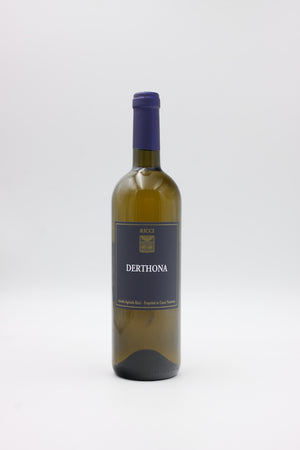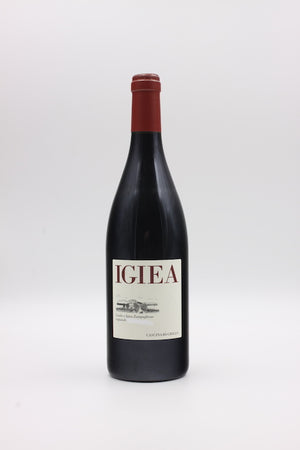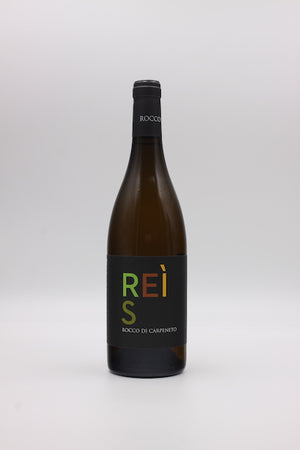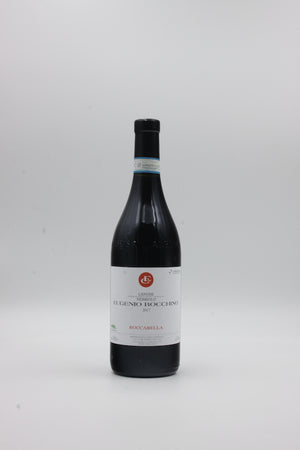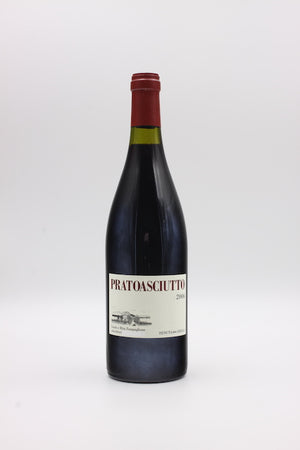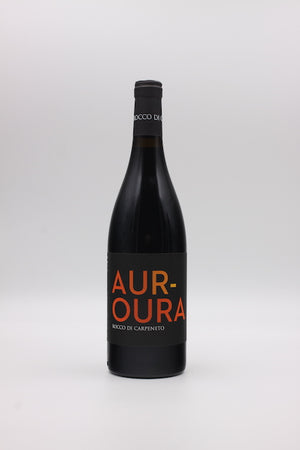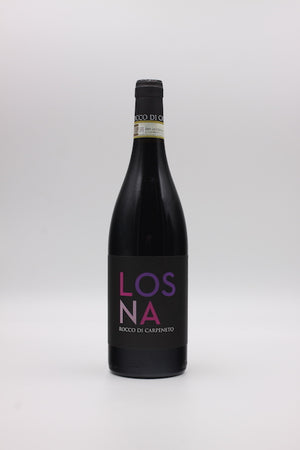- Zuhause
- Weine aus dem Piemont
- Daniele Ricci, El Matt 2019


Daniele Ricci, El Matt 2019
- €13,90
Croatina ist eine piemontesisch-lombardische Rebsorte, die grundsätzlich die Basis für exzellente Rotweine abgeben kann und jedem Weintrinker ans Herz gelegt sein soll. Das Problem ist nur, dass man oft nicht weiß, ob dort, wo Croatina draufsteht auch wirklich Croatina drinnen ist (bei Daniele Riccis El Matt – so viel sei schon einmal verraten – steht zwar nicht Croatina drauf, doch ist sie immerhin drinnen). Die Nomenklatur der Rebsorte ist ein so aberwitziges Gemenge aus Synonymen, Homonymen und Heteronymen, dass es sich lohnt, zumindest auszugsweise wiederzugeben, was in der, allen italophilen Weintrinkern empfohlene Rebsortenbibel WINE GRAPES OF ITALY von Ian d’Agata steht.
„Croatina is the name of a grape and also a wine. Croatina is the main variety used to make a DOC wine called Bonarda in Oltrepò Pavese of Lombardy but there is a Bonarda grape variety too (different than Croatina…) which is used to make a wine also called bonarda (but note the lower-case “b”)… and then there is the matter of a particularly high-quality biotype of Croatina, charmingly called Bonarda di Rovescala and also known as Bonarda Pignola. And let’s not forget two other synonyms for Croatina, Nebbiolo di Gattinara and Spanna di Ghemme; you won’t be surprised to know that the real-world famous Nebbiolo does grow in both the areas of Gattinara and Ghemme, where it is usually called Spanna, and that it has nothing to do with Croatina….
Alles klar? Möglicherweise hat Daniele Ricci seinen Croatina ja genau aufgrund der terminologischen Absurditäten El Matt, zu Deutsch, der Verrückte genannt. Der El Matt wird spontan im Stahltank vergoren und gelagert und ungefiltert abgefüllt.
Stil
Der El Matt gehört zu den Weinen, die man ohne Rücksicht auf Verluste literweise dahintrinken könnte. Er hat eine nicht zu unterschätzende Menge an Tannin, die allerdings von reifer Frucht gezähmt wird, eine vitale und dynamische Struktur und eine saftige und kompakte Konsistenz – all das macht sich alleine für sich bestens, liefert aber auch eine Vielzahl an kulinarischen Kombinationsmöglichkeiten.
Datenblatt
- Rebsorte: 100% Croatina
- Weingarten: San Leto
- Lese: Per Hand
- Vergärung: Spontan | wilde Hefen im Stahltank
- Ausbau: Im Stahltank
- Filtration: Nein
- SO₂: < 50mg/l
- Alkoholgehalt: 14,5 % vol
- Verschluss: Naturkork
- Trinktemperatur: 15-17 °C
- Perfekte Trinkreife: Ab sofort – 2028
- Inhalt und Preis pro Liter: 0,75 l/(€17,37/l)
- Alle bei Vinonudo gelisteten Winzer arbeiten in ihren Weingärten mit Kompost, organischem Dünger und natürlichen Präparaten und verzichten auf den Einsatz von Herbiziden, Pestiziden und Kunstdünger.
Ähnliche Produkte
Newsletter
Wer mehr weiß, schmeckt mehr. Einmal in der Woche gibt es Neuigkeiten zu unseren Weinen, Winzern und Veranstaltungen
© 2025 vinonudo | Shopify Thema von Mile High Themes | Powered by Shopify
